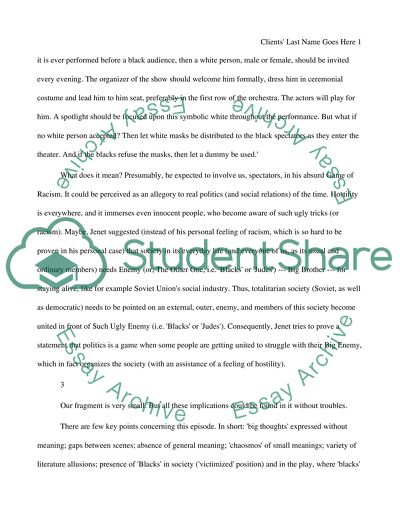Cite this document
(“World Literature Course: 'The Blacks' by Jean Jenet Essay”, n.d.)
World Literature Course: 'The Blacks' by Jean Jenet Essay. Retrieved from https://studentshare.org/literature/1470093-write-a-commentary-on-the-following-passage-from
World Literature Course: 'The Blacks' by Jean Jenet Essay. Retrieved from https://studentshare.org/literature/1470093-write-a-commentary-on-the-following-passage-from
(World Literature Course: 'The Blacks' By Jean Jenet Essay)
World Literature Course: 'The Blacks' By Jean Jenet Essay. https://studentshare.org/literature/1470093-write-a-commentary-on-the-following-passage-from.
World Literature Course: 'The Blacks' By Jean Jenet Essay. https://studentshare.org/literature/1470093-write-a-commentary-on-the-following-passage-from.
“World Literature Course: 'The Blacks' By Jean Jenet Essay”, n.d. https://studentshare.org/literature/1470093-write-a-commentary-on-the-following-passage-from.


